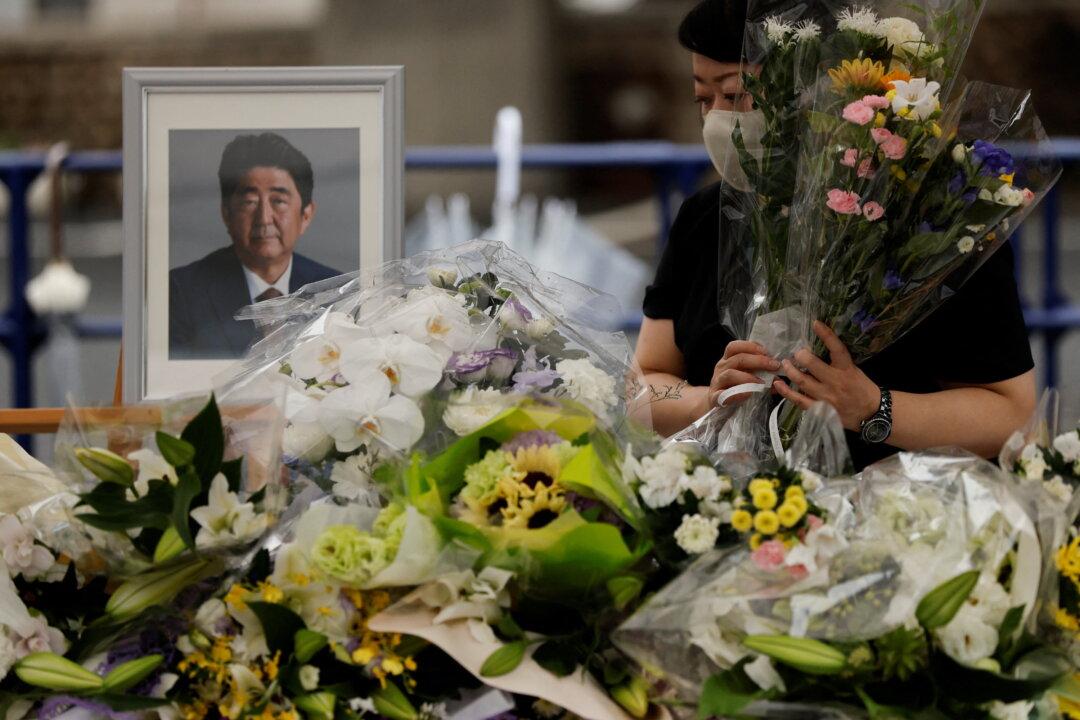Preparations are continuing for the state funeral of former Prime Minister Shinzo Abe who was assassinated on July 8.
The funeral—Japan’s second full-state funeral since World War II—is scheduled for Sept. 27 at the Nippon Budokan in Tokyo.

Preparations are continuing for the state funeral of former Prime Minister Shinzo Abe who was assassinated on July 8.
The funeral—Japan’s second full-state funeral since World War II—is scheduled for Sept. 27 at the Nippon Budokan in Tokyo.